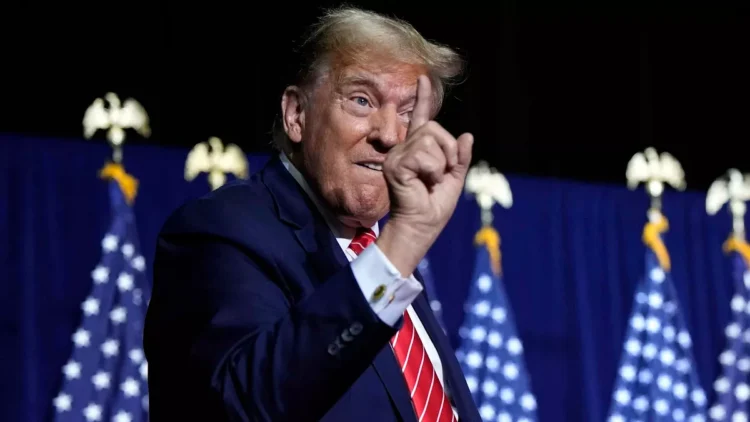NEW YORK – President-elect Donald Trump has requested a judge to delay sentencing in his hush money case, scheduled for this Friday, as his legal team appeals the recent rulings that upheld the guilty verdict.
Trump’s attorneys announced plans to ask a state appeals court to overturn Judge Juan M. Merchan’s decision from last week, which scheduled sentencing for Friday—just over a week before Trump’s inauguration for his second term.
In his ruling, the judge indicated he is unlikely to impose any punishment on Trump, who was convicted of 34 felony counts of falsifying business records. Recognizing the logistical demands of the presidential transition, Judge Merchan had allowed Trump to choose between attending the sentencing in person or virtually via video.
In court filings on Monday, Trump’s legal team argued that their intended appeal to the state appellate court triggers an automatic stay—a legal pause—on the proceedings. If that does not apply, they urged Merchan to delay the sentencing himself to prevent it from happening on Friday as planned.
“Today, President Trump’s legal team acted to stop the unlawful sentencing in the Manhattan D.A.’s Witch Hunt,” Trump spokesperson Steven Cheung stated. “The Supreme Court’s historic decision on immunity, along with the New York state constitution and other legal precedents, demand the immediate dismissal of this baseless case.”
The Manhattan district attorney’s office, which prosecuted the case, did not immediately respond to requests for comment.
While Trump’s lawyers argue that presidential immunity and the incoming second term require overturning the verdict, Judge Merchan, in his January 3 ruling, wrote that bringing the matter to a close through sentencing is in the interest of justice.
The judge suggested that the most appropriate resolution might be sentencing Trump to an “unconditional discharge,” which would effectively end the case without jail time, fines, or probation.
At the sentencing, Trump will have the opportunity to address the court, as will his lawyers and prosecutors. Once sentenced, Trump can formally appeal the verdict—a step he has publicly pledged to take.
Trump is set to become the first U.S. president to assume office with felony convictions. In a recent social media post, he declared that if the verdict is upheld, it “would be the end of the Presidency as we know it.”
The charges stemmed from allegations of a scheme to conceal a hush money payment to adult film actress Stormy Daniels in the final weeks of Trump’s 2016 campaign. Daniels alleged an affair with Trump, a claim he has denied, insisting he did nothing wrong.
The case revolved around how Trump recorded reimbursements to his then-personal lawyer Michael Cohen, who made the payment to Daniels. The conviction carried potential penalties ranging from fines or probation to up to four years in prison.
Cohen, a key witness for the prosecution and a vocal advocate for Trump’s imprisonment, described Judge Merchan’s decision to sentence Trump without punishment as “fair and appropriate under the circumstances.”
Trump’s sentencing, originally scheduled for July 11, had been postponed twice at his defense’s request. Following Trump’s re-election on November 5, the sentencing was delayed again to allow both sides to consider the case’s implications.

 English
English



























































